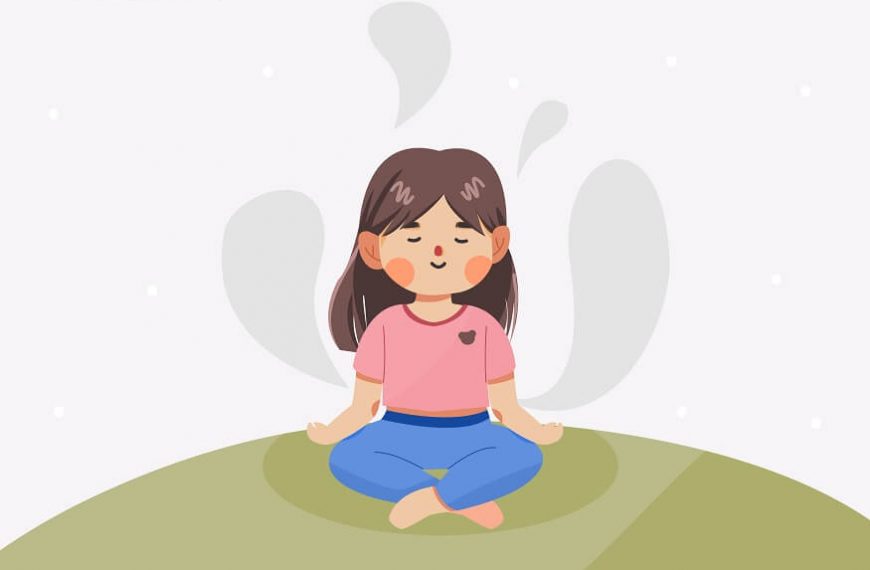Developing Self-Control in Children: Building Essential Life Skills
Pushing another child because they took a toy away from them? Not exactly the model behavior you would expect from your child!
Contrary to what you might believe, learning self-control is not as easy as clicking a button, in an attempt to get your child to respect others. In truth, it’s an art that needs to be carefully honed, by children struggling with concepts like delayed gratification.
Before we delve into the stellar discipline activities that are curated with the intention of getting your child to be on their top behavior, a look at what self-control is all about.
Understanding Self Control
What is Self-control?
In a nutshell, self-control is a skill that enables children and adults to manage restraint, by handling their thoughts, emotions, feelings and actions, without acting on their impulses. Here are a couple of typical examples of self-control in kids.
- Waiting their turn in a line.
- Not throwing temper tantrums when they don’t get what they want.
The thing is, children have limited self-control as the part of the brain responsible for emotional control is still under-developed until the age of three.
The Importance of Self-Control
Self-control is an important life skill that children of all ages need to learn. Needless to say, it’s best to start teaching them early on. With patience and consistency, we can help them imbibe the valuable skills required to master their impulses and emotions.
There is research that shows that children with low levels of self-control are far more likely to end up using drugs, alcohol, and even being sexually promiscuous.
On the other hand, children that exhibit self-control are better able to focus in class, regulate their emotions and even make wise choices. In turn, this positively impacts their self-esteem and interpersonal relationships, too.
How to build Self-control in children
Can’t wait to learn all about the wonderful discipline activities that will help your kids develop self-control? Let’s jump right in!
Help children resist temptation
Out of sight, out of mind, right? Children greatly benefit when we remove temptations and distractions. You know how difficult it is to resist that pastry in the bakery where you have just gone to purchase bread, don’t you?
To do: Take your child away from the ‘Candies’ section when you visit the supermarket next. Or, take away the toy you suspect might cause another terrible meltdown, at their next playdate.
Talk simply and clearly about Behaviors that are expected
Looking for how to build self-control in your kids? Simply tell them what’s expected of them!
To do: You have to gently, but firmly, tell them things like ‘You must share your toys with other children when playing with them’, or ‘Being helpful can make the people around you happy’. When you keep expectations simple, you will easily get kids to follow what’s expected of them.
Reward them when they exhibit self-control
This is one of the best discipline tips for students. Have you heard of the famous ‘Marshmallow Test’? Preschoolers were given the choice between eating one treat now, and two treats later. It was found that the children that waited, ended up with better results in scholastic achievement tests. Also, they were less likely to develop substance abuse problems.
To do: Give them timely incentives to be on their best behavior. When done right, this can work miracles where it comes to instilling self-control in them.
Establish a sense of routine
Your children might not be able to tell the time, but they certainly understand what it is to have a routine.
To do: Simple routines, like having lunch after reading hour is finished, go a long way in instilling patience in kids, and thereby garnering that vital sense of self-control that is much-needed when waiting for the next activity.
Play games that help them practice Self-control
What is Self-control? Nothing but a skill that can be mastered through the art of repetition!
To do: You could play the traditional game, ‘Red Light, Green Light’. Here, when the child hears the words ‘Green Light’, he is supposed to move forward. When the words ‘Red Light’ are uttered, this necessitates him freezing on the spot.
To do: After some time, when children have mastered this game, get them to make ‘Red light’ the cue to go, and ‘Green light’ the one that makes them stop. This will test their ability to inhibit their impulses and go against habit. In turn, this will help them master the all-important art of ‘self-regulation’.
Foster their sense of engagement
Certainly, one of the most important discipline tips for students.
The ability of little kids to focus their attention on key learning tasks is paramount to future school success.
To do: Newborn children naturally gravitate to the stimulus that is most present in their environment. The trick here is presenting to older children, learning activities in ways that foster that same level of engagement. Tip: One way you can do this is by reading to them with a good deal of energy and enthusiasm.
Encourage a Sense of Balance
Like all adults, kids need downtime!
There are studies that have shown that people don’t maintain the same levels of self-control over time.
To do: You might not wish to give your child two tasks, one after the other. Give them time in between, to play and explore. That will not only help them recharge succinctly well, but will also increase their chances of discovering new opportunities.
Encourage Prosocial Behaviour
One of the best ways to help children imbibe the skill of self-control, is helping them learn to take others’ feelings into account. Prosocial Competence correlates with their academic skills.
To do: Encourage them to voluntarily interact with their peers, with a view to helping them.
At EuroKids, we go out of our way to help kids master the art of self-control. We strongly believe that by learning self-control, your children can make appropriate decisions and respond to stressful situations, in ways that can yield the most favorable outcomes.












